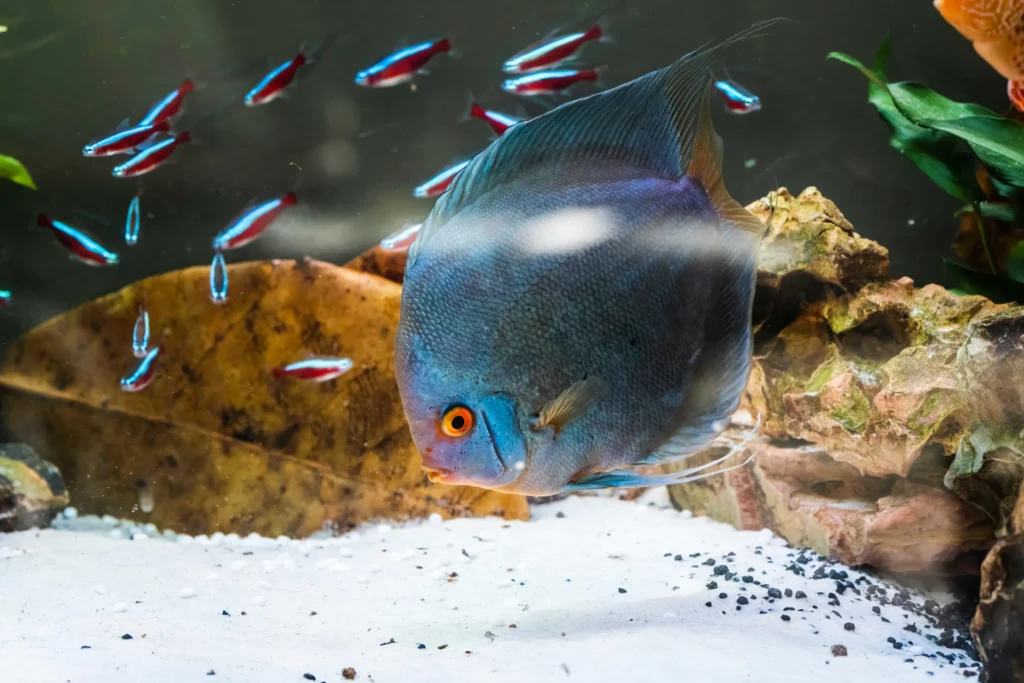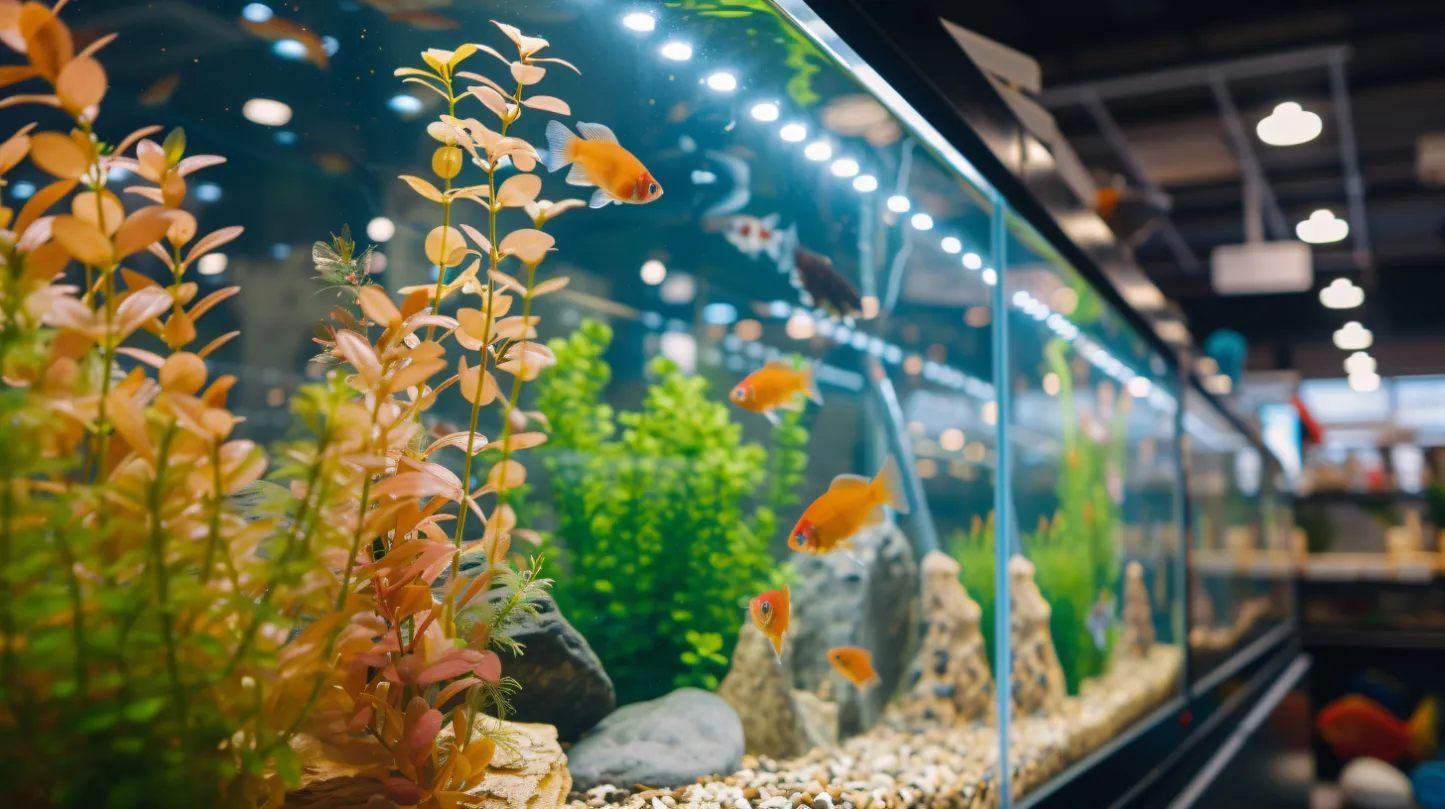

Almond leaves release tannins into the water, which lowers pH levels and softens the water. Discus fish thrive in slightly acidic, soft water, similar to their native Amazonian environment. Using almond leaves helps recreate this natural habitat, making your discus fish feel more comfortable and stress-free.
Stress is a common issue in discus fish, often caused by improper water conditions or environmental factors. Almond leaves contain anti-inflammatory and antimicrobial properties that help reduce stress in your discus fish, leading to more vibrant colors and healthier behavior. By lowering stress levels, almond leaves can significantly improve the overall health of your fish.
The antioxidants in almond leaves strengthen the immune system of discus fish, helping them fight off infections and diseases. Whether it’s preventing fin rot, fungal infections, or other common ailments, almond leaves act as a natural safeguard for your discus fish.
For those looking to breed discus fish, almond leaves are particularly beneficial. They provide a secure surface for discus fish to lay their eggs, while the improved water conditions promote successful breeding. The leaves also release compounds that encourage natural breeding behavior in discus fish.
As almond leaves decompose, they release beneficial microorganisms into the water, which become a natural food source for discus fry. These microorganisms help maintain clean water and promote the healthy growth of baby discus fish, supporting a balanced ecosystem in the aquarium.
To get the best results, add one or two almond leaves per 10 gallons of water. The leaves will sink and slowly decompose, releasing tannins and nutrients over time. Replace the leaves every few weeks or as they decompose completely to maintain optimal water quality.

Incorporating almond leaves into your discus tank not only creates a more natural environment but also provides a range of health benefits. From improving water quality to promoting breeding and reducing stress, almond leaves are a simple yet powerful tool in discus fish care.
“Excellence in Aquascaping: Meticulously Sourced Products for Beautiful, Healthy Aquariums at Every Skill Level.”
Enhance your space with our premium natural aquarium and terrarium products, beautifully crafted to bring the serene beauty of nature into your home.
Copyright © 2024 All Rights Reserved.
Below is a comprehensive table detailing our shipping rates for various countries and weight categories. These rates are designed to provide transparent and competitive pricing for all our customers. Note that the rates listed are inclusive of the fuel surcharge and are subject to the terms and conditions outlined above.
Above 70 Kgs – Below Rate to be Multiplied by the Number of Kg’s
Belly pods, from the Aegle marmelos tree, are used in aquariums to release beneficial compounds, similar to Indian almond leaves. They are beneficial for fish such as bettas, angelfish, discus, and tetras, providing natural antibacterial properties and creating a healthy aquatic environment.

Indian almond leaves (catappa leaves) and jackfruit leaves are beneficial for betta fish in aquariums. Indian almond leaves release tannins with antibacterial and antifungal properties, helping to maintain water quality, lower pH levels naturally, and reduce stress. Jackfruit leaves also release tannins, conditioning water and creating a natural environment that supports betta fish health and well-being.